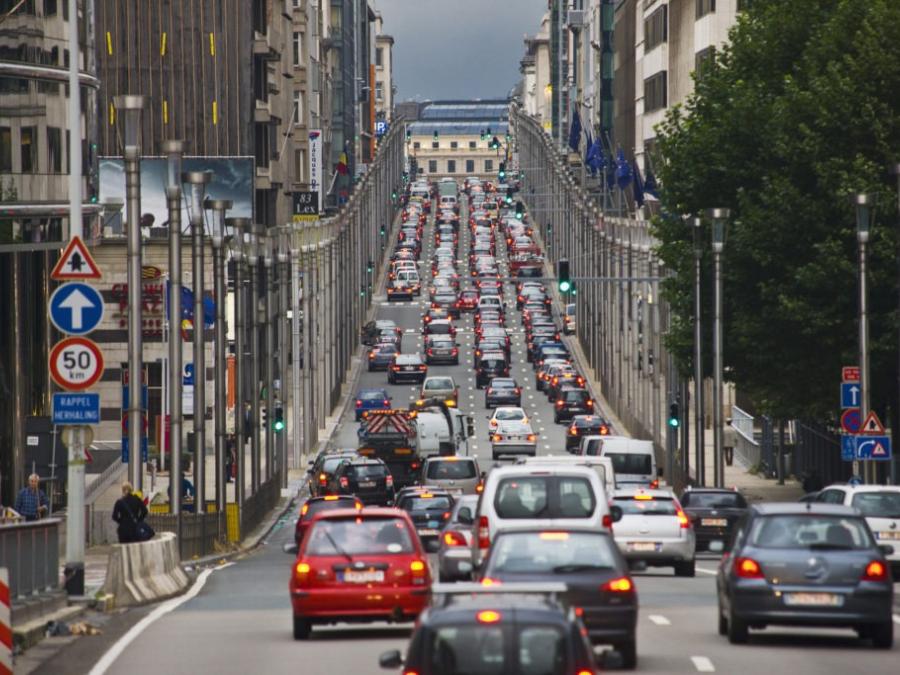
From July 6, 2022, all new cars sold in the EU will be equipped with mandatory black boxes that record technical data and will be available to the authorities.
While drivers can currently opt out of using the feature, privacy advocates fear the technology will become mandatory once it is properly deployed.
Back in 2019, the European Transport Safety Council (ETSC) announced that July 6th would be the day when all car manufacturers would be forced to equip new models with a technical data tracking system.
Recorded data will include "vehicle speed, braking, steering wheel angle, lean on the road, and whether various vehicle safety systems, starting with seat belts, have been engaged."
While insurance companies will not have direct access to the data, it will be available to law enforcement.
Authorities say the data will be "anonymized," meaning the information cannot be used to identify the vehicle's owner, though only incredibly naive people plausibly believe this.
It is expected that such systems will eventually include speed limiting technology.
As Reclaim the Net's Didi Rankovic explains, the most common method of speed limiting technology is the Intelligent Speed Assistant (ISA).
“ISA works using only GPS data, traffic sign recognition cameras installed in front of the car, or a combination of both. The speed limiter affects the power of the engine and thus reduces the speed.”
“As the name suggests, speed limiters are designed to prevent drivers from exceeding certain speed limits and provide them with audible, visual and tactile warnings until they “obey” and slow down.”
For decades, governments have pushed for all cars to be equipped with black boxes that track location data.
The ultimate dystopian scenario involves giving the police the power to use similar technology to completely disable a vehicle if the driver is deemed to have committed an infraction.
If the implementation of social credit schemes continues to become more aggressive, it will eventually be used as a form of punishment for everything from unpaid utility bills to offensive comments posted on social media.

Volkswagen can overtake Tesla to become the largest electric vehicle manufacturer by 2025, as the challenge of lifting production weakens its fiercest EV rival, claims Herbert Diess, VW Group’s chief executive.
While addressing workers at VW’s Wolfsburg headquarters on Tuesday, Herbert Diess said:
“Elon must simultaneously ramp up two highly complex factories in Austin and Grünheide [near Berlin] and expand production in Shanghai. That will cost him strength. We have to seize this opportunity and catch up quickly — by 2025 we can be in the lead.”
VW, which has invested more than €52 billion Euros in the development of battery-powered vehicles, plans to sell approximately 700,000 electric cars worldwide this year, less than half of the 1.5 million that Tesla chief executive Elon Musk suggested his brand would be able to deliver.
However, Tesla, which coped better than most competitors during the early stages of the semiconductor supply crisis, has more recently been plagued with production problems at its so-called gigafactories in the US, Europe and China. Musk told a Tesla owners’ club last month that the company’s plants in Texas and Germany were “gigantic money furnaces right now”, losing billions of dollars as they struggle to secure parts and accelerate manufacturing in the face of global supply chain bottlenecks. The Tesla boss also indicated a fear of going bankrupt.
Diess, who is friendly with Musk and has credited the entrepreneur with popularizing electric cars, seized on these developments in his address to staff, saying that while VW’s strongest competitor “remains Tesla”, the American company was “weakening”. In contrast, VW was running its electric plant in Zwickau at full capacity again after temporary shutdowns, while its factories in China had come back online after pandemic-related closures. As a result, Volkswagen chief predicted that “VW will close the gap to Tesla and not let it grow even larger” this year.
Separately, Siemens announced it had invested $450 million for a minority stake in VW’s North American charging network, known as Electrify America, in a deal that values the division at $2.45 billion. VW invested $2 billion into Electrify America as part of a court settlement over the diesel emissions scandal. It plans to have 10,000 charging stations by 2026.

Sofia Motor Show starts today, June 3, at Inter Expo Center - Sofia, Bulgaria.
















